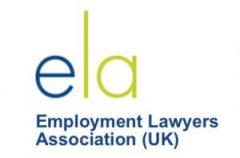There are many reasons why you may wish to give a gift of money, or even something as substantial as property, to your loved ones. It might be driven by pure generosity, a feeling of obligation, or relief of a financial burden.
However, if the motivation is to make a lifetime gift to save Inheritance Tax (IHT) at a later stage, or to reduce care home fees, you might actually be making matters more complex and onerous for you and your family. We discuss when a gift, may not be considered a gift, by HMRC and/or Local Authorities.
Potentially Exempt Transfers (PETs)
Gifts made during a person’s lifetime to another person are called Potentially Exempt Transfers (PETs). Broadly speaking, if you have made a gift which is a PET, you need to survive for seven years from the date of the gift for it to be ignored for inheritance tax purposes when you die, i.e. fall out of your Estate. If you die within seven years of making the gift, it is known as a ‘failed PET’ and even though you gave the asset away before your death, Inheritance Tax might still be payable on it.
If the person making the gift died between 3 and 7 years of making a PET, taper relief can be applied when adding it to the estate value. This relief only applies if the amount of the PET exceeds the Inheritance Tax threshold, which is currently £325,000. If the relief applies then it reduces the amount of Inheritance Tax payable on the PET, depending on the number of years the person survived after making the gift.
Gift With Reservation of Benefit (GROB)
As part of an overall strategy to strengthen its tax collection defences, the government has implemented a general anti-abuse rule (GAAR). This is particularly important for gifts where you still retain some right or benefit over it.
Even if you live for more than seven years after making a gift, if you continue to use or benefit from it, it is likely to be included in the Inheritance Tax calculation on your death, known as a ‘gift with reservation of benefit’ (GROB).
Examples of GROBs could be:
- A parent gives their house to their children but continues to live in the property without paying open market rent
- A parent gives their holiday cottage to their children but continue to take holidays there
- A parent gives a car or boat to their children but still uses it at the weekends
- An owner of a company retires and gives their shares to their children who take over the running of the business, but they continues to draw a salary and drive a company car.
There is a “de minimis” defence – that the continuing enjoyment by the donor is so small that the “virtually to the entire exclusion” rule is satisfied – but HMRC is known to take a tough line on how much continued enjoyment is allowed.
Pre-Owned Asset Tax (POAT)
Individuals who give away or gift certain assets (usually land or property) but continue to enjoy use of them are often unaware that an annual lifetime tax or POAT may arise on the gift. An example might be where they gift their home but continue to live in an annex. POAT is an additional charge to income tax which looks to tax the yearly benefit an individual is deemed to receive from the continued use of a gift. This additional income tax charge must be declared yearly to HMRC on an individual’s tax return.
The purpose of POAT is to catch those transfers which have managed to escape the GROB rules and are otherwise exempt from IHT.
Care funding and ‘deprivation of assets’
If you need to go into care and want support from your Local Authority to pay the fees, which can easily run thousands of pounds a month, they will do a financial assessment of your income, savings and property to calculate how much you should contribute towards the fees.
If you intentionally reduce your assets so that these are not included in the financial assessment e.g. give away a lump sum of money, buy substantial gifts out of character with previous spending, or transfer the title deeds of property to someone else, this is known as deliberate ‘deprivation of assets’.
If your Local Authority decides that you have deliberately reduced your assets to avoid paying care home fees, they may still calculate your fees as if you still owned the assets, even though they are no longer yours. If you transferred an asset to another person, the third party may be liable to pay the Local Authority the difference between what you would have been charged and what you were charged at the time of the assessment.
The timing of gifting is important. If you were fit and healthy when you gave assets or money away, and you could not have reasonably expected that you would need imminent care, then your actions may not count as deprivation of assets.
How we can help
Whilst gifting to someone else may seem simple, it can actually be very complicated and throw up numerous tax considerations, especially if it involves property, such as inheritance, capital gains, income and SDLT. For example, a gift that saves Inheritance Tax may unnecessarily create a capital gains tax liability.
There are also other considerations, especially when parents gift property to children. For example, if a child later divorces, the property would be considered part of the matrimonial ‘pot’. Similarly, if their child gets into financial difficulties then the gifted asset would be vulnerable.
We would advise that before you make any substantial gifts you seek professional advice on the best way to make your gift tax efficient. There are many legitimate ways to reduce your estate for Inheritance Tax purposes and a member of our team would be happy to discuss these with you. We will consider your Will and other factors and advise on the options and pros and cons of absolute gifts, or gifts into a Trust.
Please contact our Wills, Trusts & Estate Administration team to see how we can assist on 0118 975 6622 (Lower Earley office) or 01491 570900 (Henley-on-Thames office) or send us a confidential email to office@thpsolicitors.co.uk









